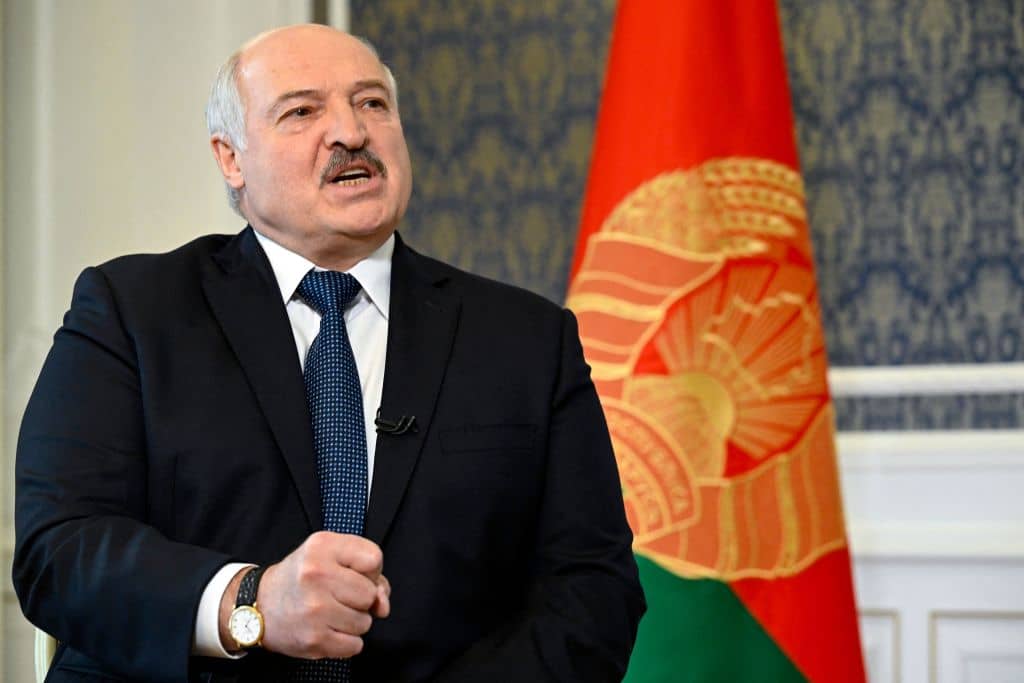What has Alexander Lukashenko been up to in China? The purpose of the Belarusian President’s three-day visit, according to state media outlet BelTA, was to continue ‘the long-term course of building friendship and mutually beneficial cooperation’ between the two countries. But the truth is somewhat murkier.
Lukashenko is Vladimir Putin’s closest ally. He allowed Russian troops to launch the northern flank of the invasion from Belarus back in February last year. Since then, he has given Russia free rein to consistently transport troops, weapons and supplies through the country. So, could he have travelled to China as a de facto Russian emissary?
Lukashenko was full of praise for Xi Jinping’s leadership, congratulating him on securing a third term as president at the Chinese Communist party’s 20th national congress last October. In return, Xi heralded relations with Belarus as a ‘strong, unbreakable friendship’.
The end result, according to the Belarusian read-out, was almost 50 agreements and contracts spanning ‘scientific and technical cooperation’, ‘investment’ and ‘industry’ among others, worth the equivalent of £2.9 billion.
Seeking ‘cooperation’ is something China seems to be doing a lot of recently. Just last week, to mark the anniversary of the Ukraine war, China published a 12-point peace plan. Although tentatively welcomed by Ukraine, the document’s call to ‘abandon the cold war mentality’ and ‘stop unilateral sanctions’ raised questions over the country’s supposed impartiality in the war. Two days before, Xi had also dispatched one of his top diplomats, Wang Yi, to visit Putin in the Kremlin. At their audience the two confirmed they were ready to deepen Russia and China’s ‘strategic cooperation’. Xi is reportedly planning a trip to Moscow himself.
This flurry of Chinese activity comes amid western suspicion about China’s true motivations with Ukraine. As Peter Frankopan writes in this week’s magazine, there have been concerns that China is considering providing lethal weapons to Russia. According to the German newspaper Der Spiegel, this could be done through the use of falsified papers to try and disguise shipments of weaponry to Russia as civilian aviation parts. If true, this would expose just how disingenuous China’s supposed neutrality is.
Some, such as the Institute for the Study of War, have suggested that the trade agreements struck between Belarus and China this week will be used to help give cover to Chinese weapons shipments to Russia. With agreements and contracts relating to the vaguely-worded realms of ‘industry’ and ‘investment’ now signed between Minsk and Beijing, it would be foolish to discount this possibility.
That’s not to say that Belarus itself has nothing to gain. After years of flirting with both Europe and Russia and playing both off each other to win favourable terms for itself, Belarus was placed under sanctions by much of the West following Lukashenko’s disputed election victory and subsequent violent crackdown in 2020. Those sanctions were further increased after Lukashenko’s complicity in Putin’s invasion of Ukraine became clear. With Russia also under heavy sanctions, Belarus’s decision to strengthen ties with China could indicate a desire by Lukashenko to seek a level of security from Beijing.
Whether Lukashenko’s visit to China was made with his own interests in mind, or at the behest of Putin, this further strengthening of relations between China and the aggressors of the Ukraine war is a cause for concern. What position China wants for itself in the post-Ukraine world order is still uncertain. But, clear as day, any decision by Xi to prop up Putin and Lukashenko’s regimes more overtly would prove disastrous.







Comments